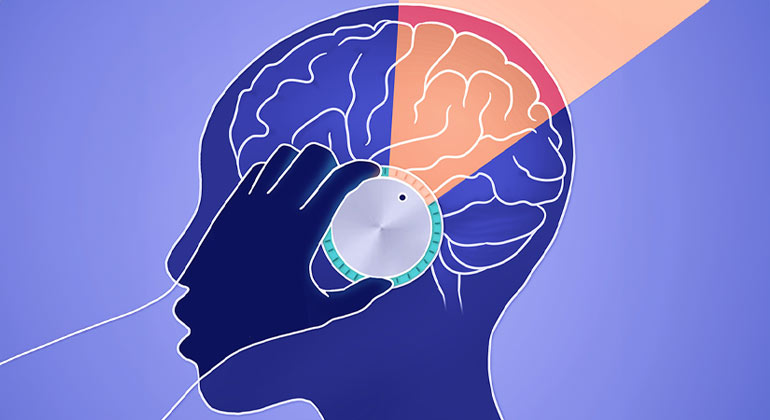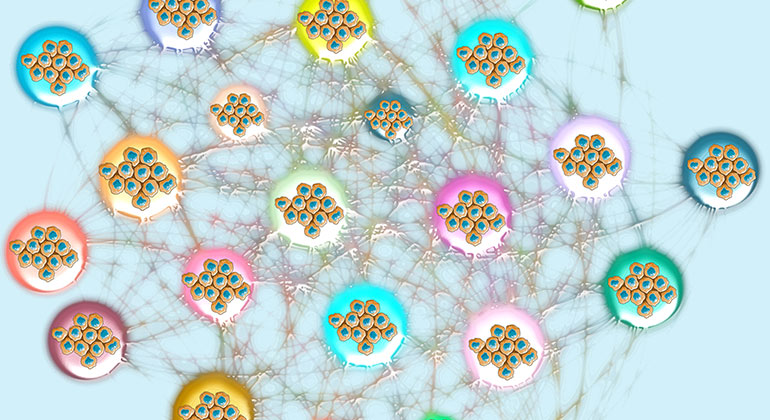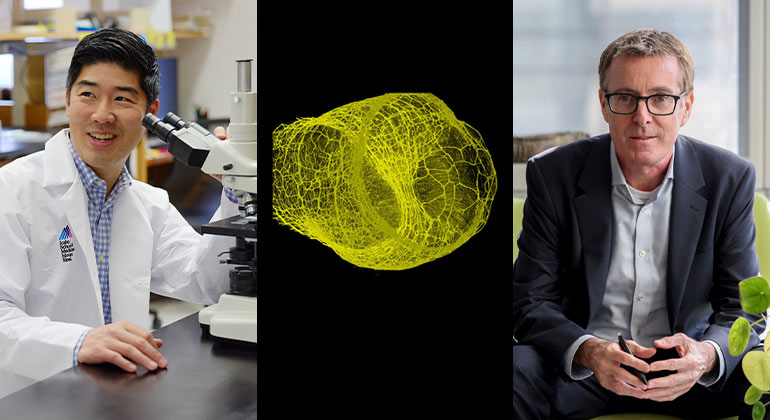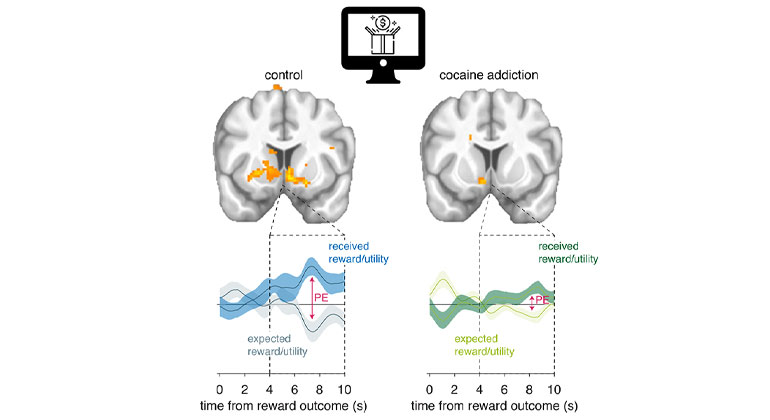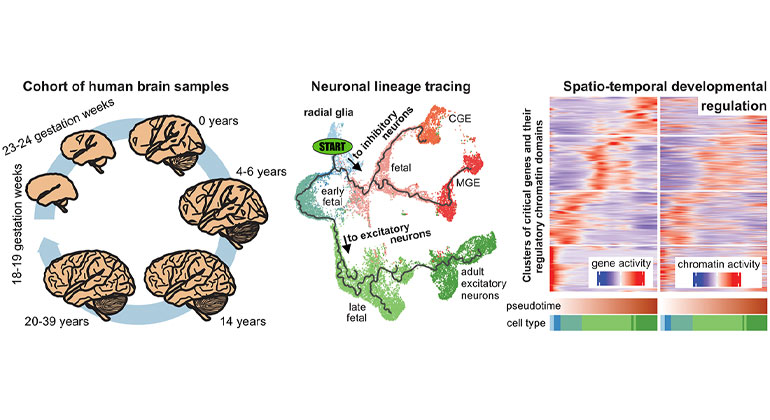New Drug Is Safe and Effective in Reducing 'Off' Time in People with Parkinson's Disease
New research in Parkinson's disease and Alzheimer's disease were presented at the American Academy of Neurology meeting this week.
Promising Phase II results in Parkinson’s disease (PD) and data on the success of Amyvid™, the first diagnostic imaging tool to diagnose Alzheimer’s disease (AD), were presented by researchers from the Icahn School of Medicine at Mount Sinai at the American Academy of Neurology (AAN) meeting March 16-23, 2013 in San Diego.
- New Drug May Improve Quality of Life for People with Parkinson’s Disease
Levodopa is the most effective drug for treating PD, reducing tremors, slowness, stiffness, and walking difficulty. After five to 10 years, however, the duration of its treatment benefits wears off and PD-related symptoms return, representing a major source of disability for patients despite the benefits of the drug. This period of ineffectiveness, which can last six hours or more per day, is known as “off” time.
Researchers led by C. Warren Olanow, MD at The Mount Sinai Medical Center evaluated the safety and efficacy of a new oral agent called tozadenant in patients taking levodopa who experienced at least 2.5 hours of “off” time each day. The study included 337 patients who were administered 60, 120, 180 or 240 mg of tozadenant twice daily or placebo for 12 weeks. Patients taking 120 or 180 mg of tozadenant saw significant reductions in off-time. The drug was generally well-tolerated and did not result in troublesome dyskinesia, or involuntary movements, during “on” time.
“These findings are exciting because tozadenant has a different mechanism of action than existing medications, providing new treatment benefits and improved quality of life,” said Dr. Olanow, who is the Henry P. and Georgette Professor and Chairman Emeritus, Department of Neurology and Director of the Bendheim Parkinson Center at Mount Sinai. “I look forward to studying the benefits of this drug in larger groups of patients.”
Receptors in the brain called A2a are expressed in high concentration in the brain and research shows that they play an important role in regulating motor function. Tozadenant blocks the overexpression of A2a receptors.
- Dr. C. Warren Olanow Receives Movement Disorders Research Award
Dr. Olanow is the 2013 recipient of the Movement Disorders Research Award from the AAN. Sponsored by the AAN, the Parkinson's Disease Foundation, and the AAN Movement Disorders Section, this award recognizes an individual for outstanding work in the field of Parkinson's disease or other movement disorders for either a single outstanding contribution or for lifetime achievement.
Dr. Olanow presented a 20-minute lecture on his research during the annual meeting about PD as a prion disorder, a group of progressive conditions that affect the nervous system in humans and animals.
“We have come a long way during my career in advancing treatments for Parkinson’s disease and improving the quality of life of those with this debilitating disease,” said Dr. Olanow. “I am honored to be recognized by the American Academy of Neurology with this prestigious award.”
Past award winners include Caroline Tanner MD, PhD, FAAN; John Nutt, MD; David Eidelberg, MD; Mahlon DeLong, MD; Alim Benabid MD, PhD; and Joseph Jankovic, MD.
Dr. Olanow has authored more than 300 publications primarily related to PD and neurodegeneration and is the Chief Editor of the journal Movement Disorders. He ranked #1 in the U.S. in research citations in PD during the past decade. Dr. Olanow has served on numerous editorial and scientific advisory boards and has lectured at universities and conferences throughout the world. He is the past President of the Movement Disorder Society, past Treasurer of the American Neurological Association, and former President of the International Society of Motor Disturbances. He has been named an Honorary Professor at the University of London (Royal Free Hospital), and an Honorary Member of the French Neurological Society. This year, Dr. Olanow was named Honorary Fellow from the Royal College of Physicians in the United Kingdom.
- Imaging Technique Aids in Alzheimer’s Disease Diagnosis
Representing the Mount Sinai Center for Cognitive Health and the Mount Sinai Alzheimer’s Disease Research Center (ADRC) at the AAN Annual Meeting was Heidi Bender, PhD, Assistant Professor of Neurology and Psychiatry, who presented findings demonstrating a consistency of neurologic diagnosis as determined by cognitive testing with amyloid detection brain scanning. In a series of 11 cases, diagnostic profiles determined by neuropsychological battery testing matched findings on PET scans which identified five patients with a diagnosis of amnestic mild cognitive impairment (MCI), four of whom presented with evidence of AD on the PET scan. Those diagnosed by cognitive testing with non-AD dementias had no evidence of amyloid on the scan. These data underscore the benefit of neurometrics in the early identification process, thereby facilitating accurate diagnosis and informing treatment planning.
“Our case series indicates the importance of neuropsychological testing and brain imaging together in improving Alzheimer’s disease diagnosis and developing an appropriate treatment plan for our patients,” said Effie Mitsis, PhD, Assistant Professor of Psychiatry at Mount Sinai, who worked on the research with Dr. Bender.
This follows the presentation of a case series at the Human Amyloid Imaging meeting in Miami in January, which showed that the use of AD brain imaging was positive and consistent with clinical diagnosis prior to scanning. Florbetapir in conjunction with PET imaging is approved by the FDA under the brand name Amyvid™. Mount Sinai was the first center in New York State to offer the scan in a clinical setting.
To learn more about the Mount Sinai Center for Cognitive Health, visit http://www.mountsinai.org/patient-care/service-areas/neurology/areas-of-care/center-for-cognitive-health.
To learn more about the department of Neurology at Mount Sinai, visit http://icahn.mssm.edu/departments-and-institutes/neurology.
To learn more about the ADRC at Mount Sinai, visit http://icahn.mssm.edu/research/centers/alzheimers-disease-research-center.
About The Mount Sinai Medical Center
The Mount Sinai Medical Center encompasses both The Mount Sinai Hospital and Icahn School of Medicine at Mount Sinai. Established in 1968, the Icahn School of Medicine is one of the leading medical schools in the United States, and is noted for innovation in education, biomedical research, clinical care delivery, and local and global community service. It has more than 3,400 faculty in 32 departments and 14 research institutes, and ranks among the top 20 medical schools both in National Institutes of Health (NIH) funding and by U.S. News & World Report.
The Mount Sinai Hospital, founded in 1852, is a 1,171-bed tertiary- and quaternary-care teaching facility and one of the nation’s oldest, largest and most-respected voluntary hospitals. In 2012, U.S. News & World Report ranked The Mount Sinai Hospital 14th on its elite Honor Roll of the nation’s top hospitals based on reputation, safety, and other patient-care factors. Mount Sinai is one of 12 integrated academic medical centers whose medical school ranks among the top 20 in NIH funding and by U.S. News & World Report and whose hospital is on the U.S. News & World Report Honor Roll. Nearly 60,000 people were treated at Mount Sinai as inpatients last year, and approximately 560,000 outpatient visits took place.
For more information, visit http://www.mountsinai.org.
Find Mount Sinai on:
Facebook: http://www.facebook.com/mountsinainyc
Twitter @mountsinainyc
YouTube: http://www.youtube.com/mountsinainy
# # #
About the Mount Sinai Health System
Mount Sinai Health System is one of the largest academic medical systems in the New York metro area, with more than 43,000 employees working across eight hospitals, over 400 outpatient practices, nearly 300 labs, a school of nursing, and a leading school of medicine and graduate education. Mount Sinai advances health for all people, everywhere, by taking on the most complex health care challenges of our time — discovering and applying new scientific learning and knowledge; developing safer, more effective treatments; educating the next generation of medical leaders and innovators; and supporting local communities by delivering high-quality care to all who need it.
Through the integration of its hospitals, labs, and schools, Mount Sinai offers comprehensive health care solutions from birth through geriatrics, leveraging innovative approaches such as artificial intelligence and informatics while keeping patients’ medical and emotional needs at the center of all treatment. The Health System includes approximately 7,300 primary and specialty care physicians; 13 joint-venture outpatient surgery centers throughout the five boroughs of New York City, Westchester, Long Island, and Florida; and more than 30 affiliated community health centers. We are consistently ranked by U.S. News & World Report's Best Hospitals, receiving high "Honor Roll" status, and are highly ranked: No. 1 in Geriatrics and top 20 in Cardiology/Heart Surgery, Diabetes/Endocrinology, Gastroenterology/GI Surgery, Neurology/Neurosurgery, Orthopedics, Pulmonology/Lung Surgery, Rehabilitation, and Urology. New York Eye and Ear Infirmary of Mount Sinai is ranked No. 12 in Ophthalmology. U.S. News & World Report’s “Best Children’s Hospitals” ranks Mount Sinai Kravis Children's Hospital among the country’s best in several pediatric specialties.
For more information, visit https://www.mountsinai.org or find Mount Sinai on Facebook, Twitter and YouTube.
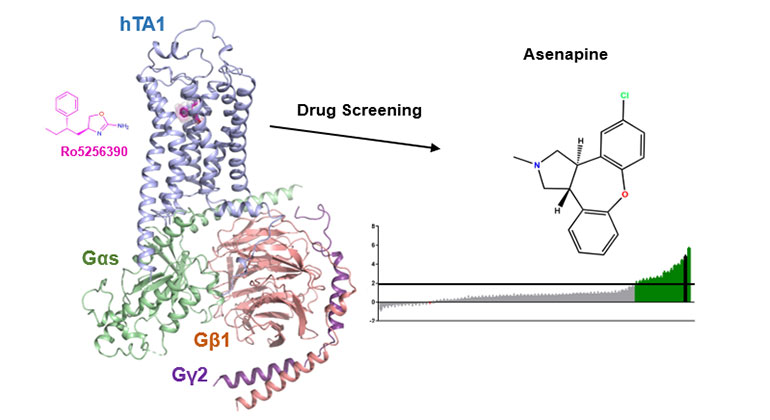
Demystifying a Key Receptor in Substance Use and Neuropsychiatric Disorders
Jan 02, 2024 View All Press Releases